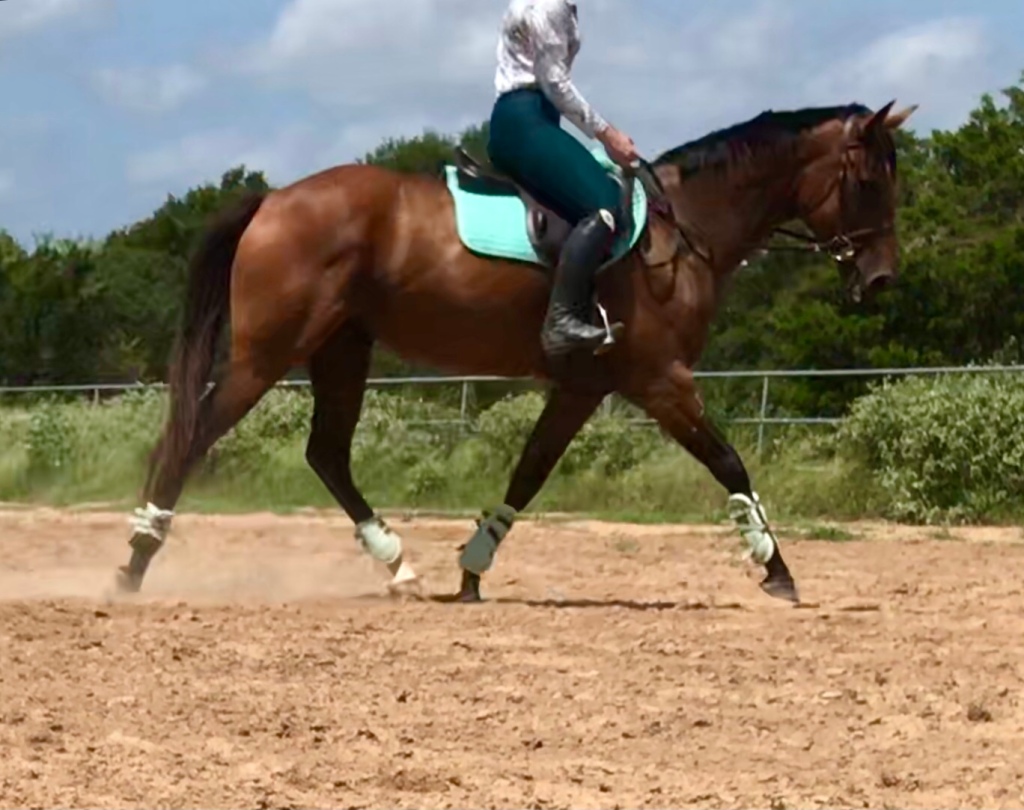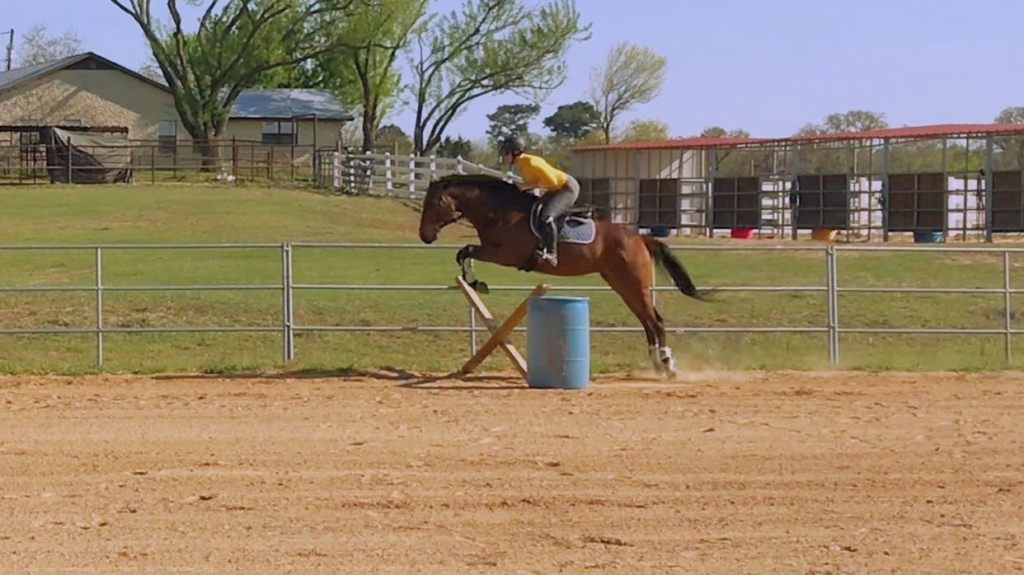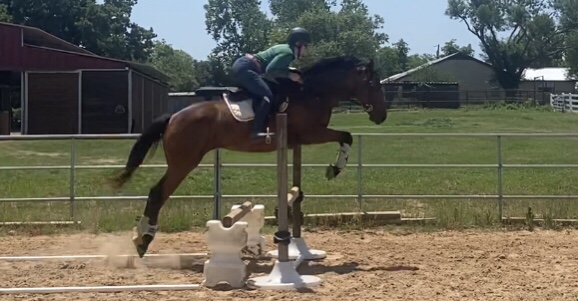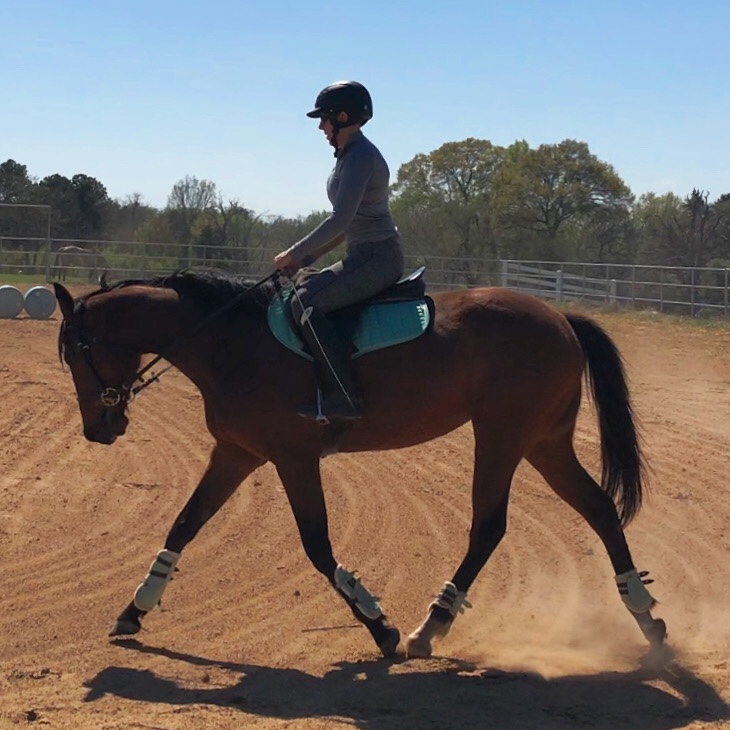
When I was a junior, I rode a horse that reared up and flipped over on me.
I understand this is a fear of most riders. I don’t share it to brag, indeed, it is not something I find brag-worthy. More, it demonstrates my ridiculous notion of what I do and do not consider a risk. Horses to me, despite being one of the more dangerous sports, are home. I calculate my risks. And rearing can enter my equation. Many won’t take on a rearer, I am open to it.
This horse, incidentally named Easy, was one I had ridden many times before with no issues. As we were approaching a jump, he stood up before I even knew what happened. One second we were approaching the jump, the next he was at the apex and it occurred to me he had reared, and then we were over and the cantle was in my chest. That is all I know.
We were both “fine”.
Many say horses only rear for two reasons: they won’t go forward or pain. I’m pretty sure if they won’t go forward, or can’t, it still falls into the pain category. I saw it with my own horse.
Roz developed a rearing problem that was not overt, but was not fixed by making her go forward. It was clear that she literally could not and all that energy had only once place to go: up.
It was not something that came out every ride. But the it first occurred at a clinic with someone who is an excellent instructor. But Roz could not be settled.
When I mention my horse rears/reared I usually get very little response. Indulgent nods and half-hearted smiles, maybe some ohs, or people want to share their stories, which is fine. But when I say my horse rears and you cannot ride her, run her, push her out of it, I mean it. She will simply go higher. I remember her standing up so high, all I could do was push into her neck as we tilted back off balance, hoping she would get the only message I was capable of sending her. There was no chance of swinging off. I hung from her neck and at times my legs dangled directly under me.
Again, this is not to brag. It’s to make the point that rearing is serious. I do not see the value in teaching a horse to rear as a trick. It is a complete disservice to the animal. We should do our best to make their futures bright and successful. Who knows what will happen to us and what may happen to them because of that. Best to have safe, happy horses.
I tried many different avenues to address Roz’s rearing. I had a body worker out. I took her to get a neurological exam to check for EPM. I scheduled vet visits. I looked into supplements. I changed training tactics. I used another saddle. I found works arounds but nothing quiet allayed the “quirk”
I have nothing wrong with quirky. One of my horses I received for free because she was quirky to the point of unsellable, yet talented. I have another horse, quirky and sensitive in her own right, who I adopted from a TB rehomimg group. Roz, my third, was also free.
She was the tiniest, petite filly who looked like she’d never reach 15 hands. She was neglected, especially if you ask her, and was picked up for free by my sister. Maybe she’ll make a small Junior one day, she thought. But no one told Roz. Who ate. Who drank. Who lived out with 3 TB geldings and was the only mare.
All Roz has ever wanted is attention. She took to jumping. In fact, she quite liked it. She jumped and enjoyed DOING things. So I kept trying to figure out the source of her rearing. The first bodyworker was one that makes you second guess the whole industry. But, I’ve seen success with others in the past, so I tried again. Another osteopath.

Simply put, she fixed my broken horse like one might flip a switch entering a dark room. She explained that Roz’s cranial nerves were blocked, and her sacrum too. But noticeably, the inflammation under the ear was telltale. Roz couldn’t turn or look left without compensating somehow. It was like she was trying to work, learn, and play, in the midst of a giant migraine. All. The. Time.
It would be easy to say, “and just like that she was fixed”, and in some ways it feels like that. But that is misleading.
Roz was able to recover and make giant progress in her training after that. I still must accommodate her by attending her ears correctly, and making sure she is turning her head properly. It is part of the grooming ritual now. Even nonriding days, I still make sure she gets her attention.

Then. We had a set back. Through no fault of her own, Roz started rearing again. But I knew exactly what accident had caused her impingement. I know the signs. I know who can help get Roz back on track. Rearing didn’t return out of nowhere, à la inverted ex deus machine.
Unfortunately, my osteo is so good and in high demand I have to wait 2 more months for an appointment. It’s blistering hot so I think it’s a good time for a break. What’s the point of trying to teach Roz anything new or expect her to function when I know she might be suffering her migraines? It’s unconscionable to expect her to perform when I know she’s not even capable of being herself.
I’m not super into alt medicines and therapies. I don’t own crystals or squat over mirrors. But, sometimes, the answer is a supplement, or a body worker, or a change in training, people, environment, etc. Sometimes the terrible, horrible, no good, very bad horse has a reason for their behavior. In fact, they always do. Whether one wants to spend the time, energy, money to explore is a different matter. But horses are not robots, or spiteful, or whatever anthropomorphism we attribute to them. They’re horses. They’re simple. We’re the complicated ones.
